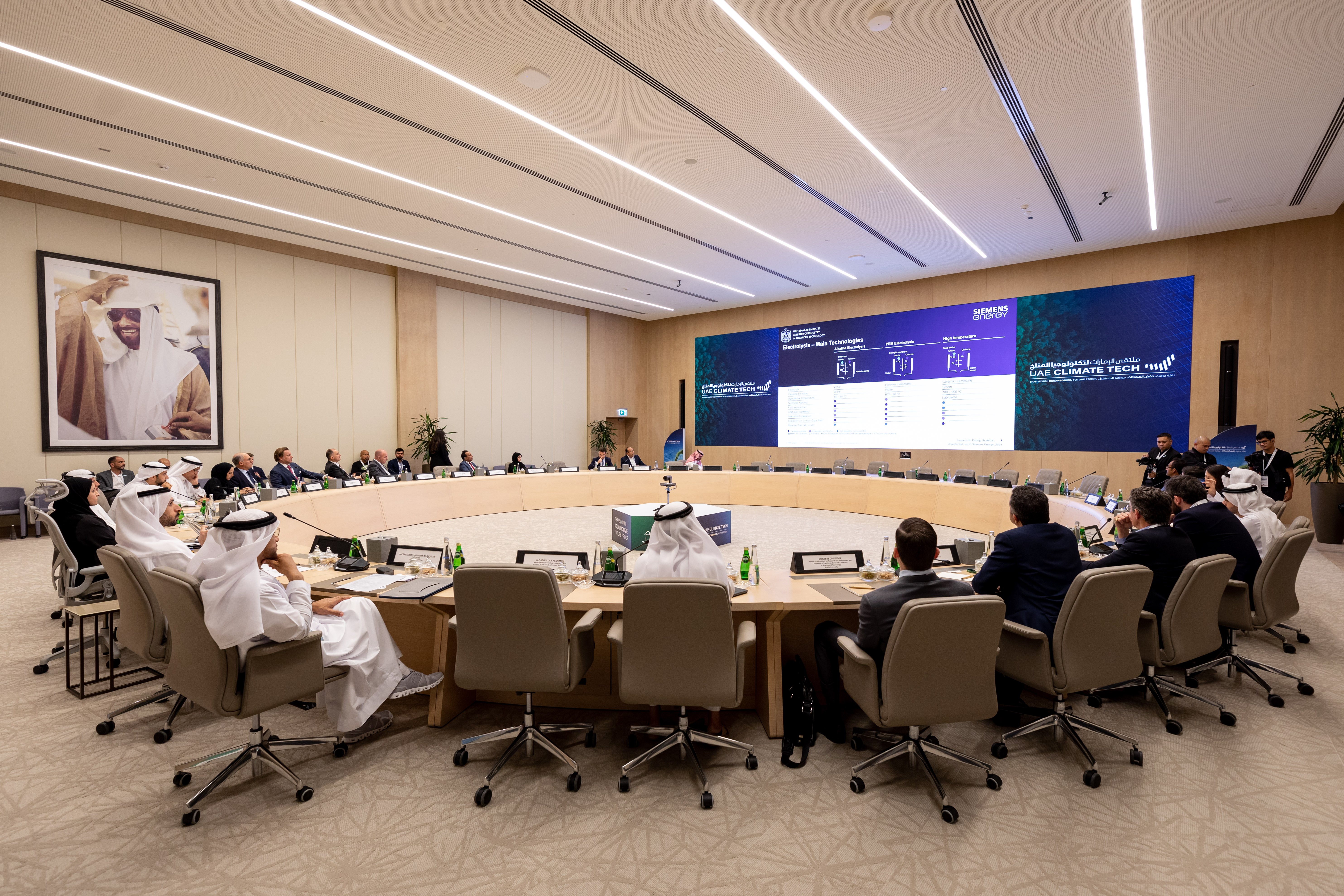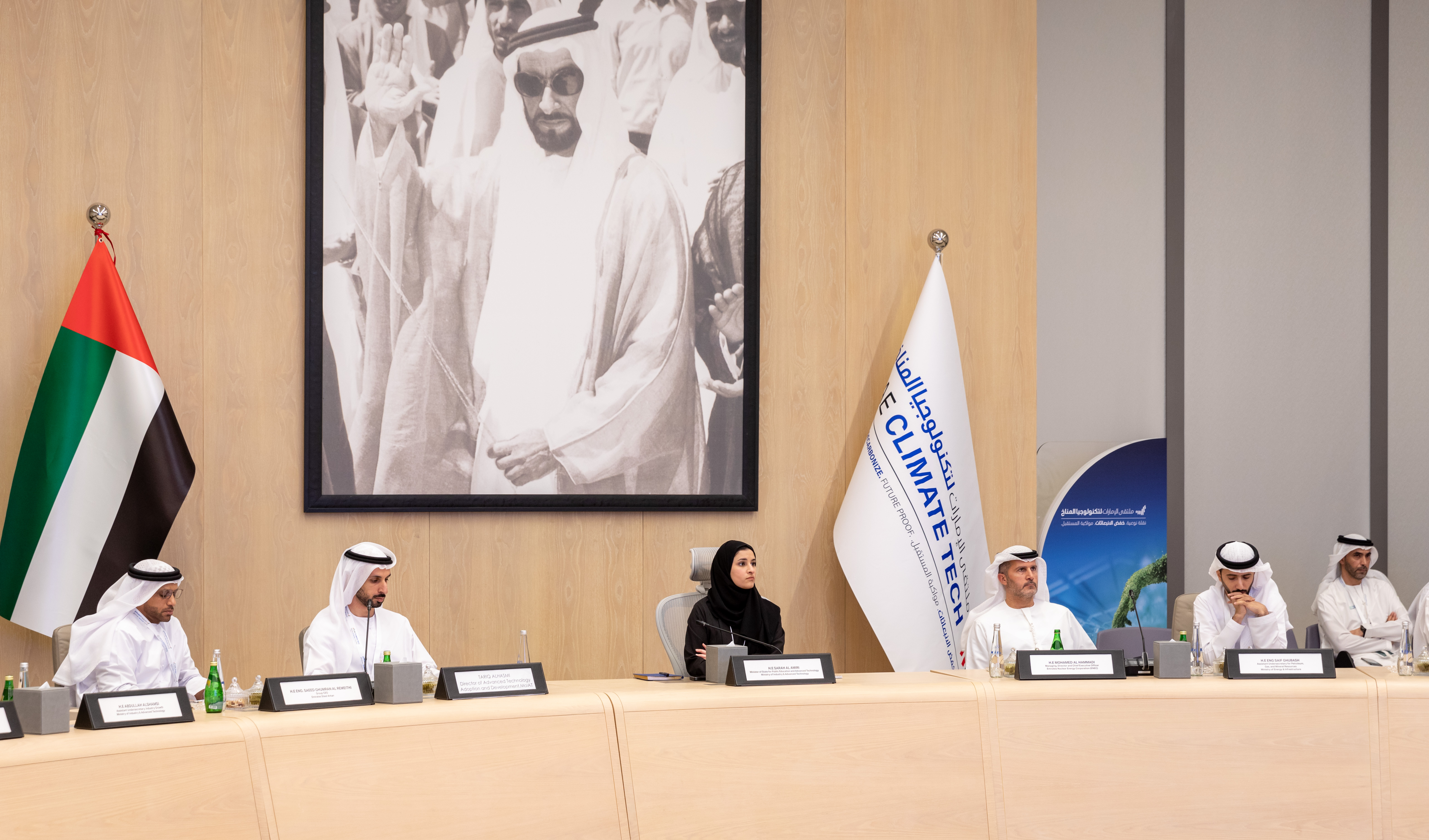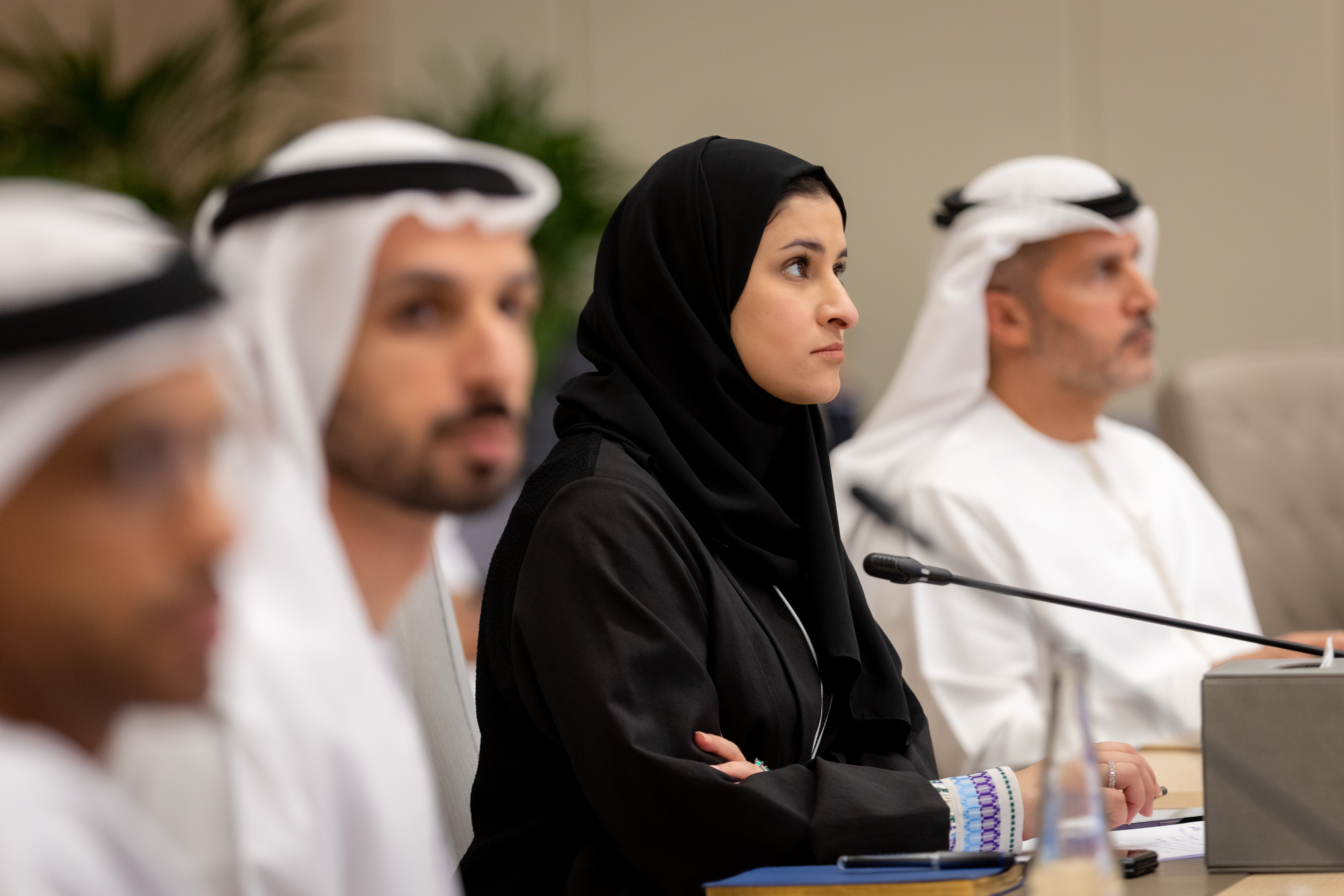Energy industry and technology leaders gather in UAE to tackle hydrogen’s unanswered questions ahead of COP28
MoIAT launches the “Technology for Climate Action” dialogues initiative ahead of COP28 to deep dive into key enabling climate technologies Policymakers, energy companies, academics, tech firms, industrial corporations and investors gather at UAE Climate Tech to address barriers to unlocking hydrogen economy as part of the first dialogue
Abu Dhabi, UAE. 11 May 2023 – Industry, technology and energy leaders gathered in Abu Dhabi to address the major challenges facing the widescale adoption of green hydrogen and the growth of the hydrogen economy.
The Ministry of Industry and Advanced Technology (MoIAT) hosted a dialogue session at the UAE Climate Tech forum, which took place on May 10-and11 in the run-up to COP28 in November. The forum convened 1,000 global policymakers, CEOs, experts, technology leaders, and investors to help drive disruptive technologies and economic opportunities that accelerate decarbonization.
This is the first of a series of dialogues launched by MoIAT, on sustainability and key enabling climate technologies towards and beyond COP-28. These dialogues will involve policy makers, climate technology experts, and industrial players, and aim to address key sustainability and climate technology issues and enablers.
During the hydrogen dialogue titled ‘Hydrogen Economy, The Unanswered Questions’, policymakers, energy companies, academics, tech firms, industrial corporations and investors addressed the main challenges across the hydrogen value chain, including production, storage, transportation and application, and the required technological advancements to unlock the hydrogen economy.
Her Excellency Sarah Al Amiri, Minister of State for Public Education and Advanced Technology chaired the session, which was attended by senior representatives from MoIAT, Emirates Nuclear Energy Corporation, the Ministry of Energy and Infrastructure (MoEI), the International Renewable Energy Agency (IRENA), ADNOC, DEWA, Mubadala, Khalifa University, Emirates Steel, Emirates Global Aluminum. Siemens Energy was the dialogue’s knowledge partner.
HE Sarah Al Amiri said: “Hydrogen is one of the key fuels that will power the energy transition and help us to achieve carbon neutrality by 2050. But there are multiple challenges across the entire hydrogen value chain that we must address. The UAE is positioning itself as a global leader in hydrogen technology as part of its economic and energy diversification strategies, and we understand the importance of working with partners to unlock the full potential of this high-growth sector. We are committed to working with international partners and fostering collaborations among public and private sector stakeholders, locally and globally, to break down the barriers to the hydrogen economy in line with the UAE Energy Strategy 2050 and the UAE Net Zero by 2050 Strategic Initiative.
“Under this commitment, we have introduced initiatives such as the Technology Transformation Program and the Emirates Research and Development Council (ERDC) to stimulate the development of enabling technologies that will help scale hydrogen technology. These initiatives will boost R&D expenditure, promote international collaboration in innovation, and accelerate the required technological advancements. We recognize that platforms like UAE Climate Tech are also vital to an inclusive and collective global energy transition. We will continue providing these platforms to supplement our investments in renewable and low-carbon energy sources in line with the Paris Agreement and to help boost sustainable economic growth.”
The UAE is aiming to capture 25 percent of the global hydrogen fuel market by 2030 as part of its energy-mix and economic diversification plans. To enhance its leadership and competitiveness in hydrogen markets, the UAE launched the Hydrogen Leadership Roadmap in 2021, which is a major driver for providing future solutions to climate change challenges. The country is investing AED 600 billion in clean and renewable energy projects over the next 3 decades.
The discussion covered the role of hydrogen in the energy transition, with delegates discussing how technologies, policies and standards can enable the hydrogen economy. The different types of hydrogen production was a key focus. Delegates heard that clean hydrogen production using carbon capture technologies and powered by renewable energy will eventually gain the market share.
The UAE also has an opportunity to become a global leader in in nuclear-powered hydrogen production due to its investments in nuclear power, delegates were told. Energy and industrial leaders also agreed that there needs to be consensus and standardization on what constitutes low-carbon hydrogen to enable trade and the hydrogen economy.
The delegates also addressed policies and incentives, including the role of policymakers and the importance of collaboration and innovation. A whitepaper based on the session and featuring recommendations will be published ahead of COP28.
Did you find this content useful?
You can help us improve by providing your feedback about your experience.




